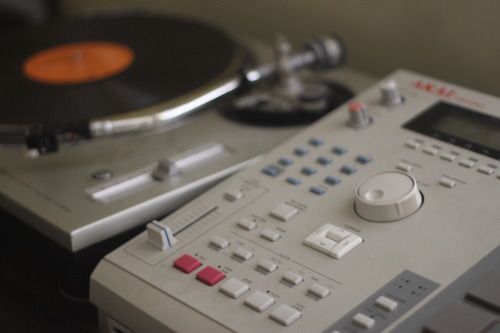Case law Analysis
‘The case of Saregama India Limited v. Andre Young, was one of the first cases brought by an Indian against a western defendant. The case revolved around Bappi Lahiri’s hit song from 1976(Thoda Resham Lagta Hai). The copyright of the song was assigned to the film Jyoti(1981). DJ Quik a hip hop producer stumbled across the song on an Indian cable channel in America and recorded the same, after which he applied beats to it using a sampler, drum machine and sent the demo across to Dr. Dre who was a the executive producer at universal, he assigned vocals by the singer Shari Watson and artist Rakim on the track and released it under the id “Addictive” the track was a commercial success and topped the weekly and monthly charts of 2002.
More info on the sampling bits on this track (via Whosampled)
The looping mechanism used is rather familiar in hip hop productions, the song had the chorus of “Thoda Resham Lagta Hai” looped throughout with additional vocals mixed in on top. The original sound recording was used and no license had been applied for by Universal. The court denied punitive damages to Lahiri but granted an injunction against “addictive”. The reason stipulated on was that Lahiri had registered the work under the US Copyright office almost two years after the manufacturing and selling of the album. The grant of damages would then be retrospective in nature and would then set a precedent for various other cases to arise. The plaintiff also claimed a case of false attribution but the court rejected the claim on the ground that it is only reserved for the producers and not to the author of the idea.’
More info on the sampling bits on this track (via WhoSampled)
In the case of Bridgeport Music, Inc. v. Dimension Films the court held the criterion for determining if works were diverging based on whether it is an infringement of musical copyright or sound recording and rejected the di minimis defense as this was a case of sound recording infringement which was in the courts terms “a physical taking rather than an intellectual one.” Since this involved the lifting of a fixed medium and not the song in itself the court found it irrelevant that it was a mere two second clip, which the lay man would not be able to distinguish.
To keep it fairly simple the court held that even a slvier of a sound recording needed a license to be sampled.
Mueller, Jennifer R.R. 81 Ind. L.J. 435 (2006) , All Mixed Up: Brigeport Music v. Dimension Films and De Minimis Digital Sampling
‘Saregama. v. Mosley, decided upon a similar issue where Timbaland had used a one second sample of the song “Baghon Mein Bahar Hai” from the film “Aradhana” which released in 1969, similar to the Bridgeport case the sample used in the song “put you on the game” entailed a loop of approximately one second which was filtered around various other frequencies in the spectrum.
Saregama brought a suit of infringement under musical copyright and the sound recording rights. The court found that the structure of both tracks were entirely dissimilar. Saregama argued that the loop used was a core part of the song and distinctive in its nature, the court responded to this claim that the two tracks were entirely diverging in the tempo, vocal content, groove and arrangement. The court also stated that the lay man could not decipher the similarity of both tracks in question.
More info on the sampling bits on this track (via WhoSampled)
Saregama’s claim of sound recording infringement, citing the Bridgeport case was struck down, reasoning that for a sound recording infringement to occur the work must be similar in sound and the recording does not pass the substantial similarity criterion set up, the court hence upheld the di minimis principle and did not rule in accordance with the Bridgeport judgment.’
‘Rapper Vanilla ice’s track “ice ice baby” which used a sample of the bass line from the queen song under pressure also came under scrutiny and was settled outside court. The verve was also involved in a fairly complicated case with the rolling stones where they had to return all royalties from their commercially successful track “bitter sweet symphony”.
The verve at the time a fairly young and unrecognised band had used a thirteen second sample of not an original rolling stones song(The last time) but an orchestral version performed of the same by Decca records the owner of the sound recording, a copyright license to use the sample was also cleared by the company.
However rolling stones threatened to bring the suit for musical infringement and verve surrendered hundred per cent of the royalties of the track. George Micheal and Janet Jackson were also involved in similar disputes brought by the band. “At its best, sampling benefits society by creating a valuable new contribution to modern music literature. At its worst, sampling is vandalism and stealing.”
